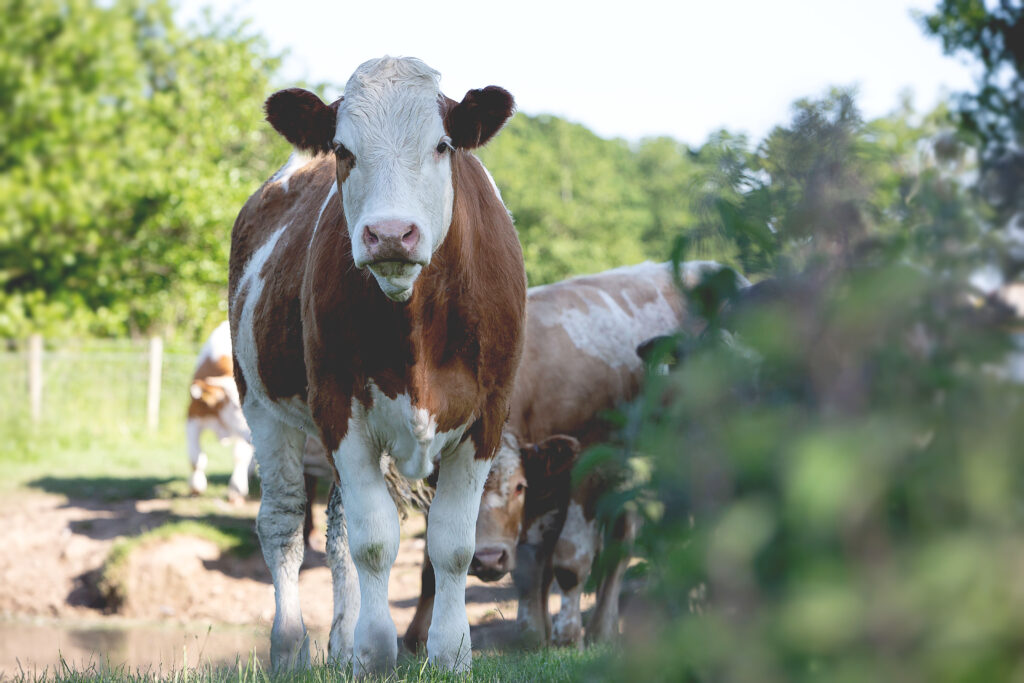Understanding Meat Labels: Grass-Fed, Organic, Free-Range, and More
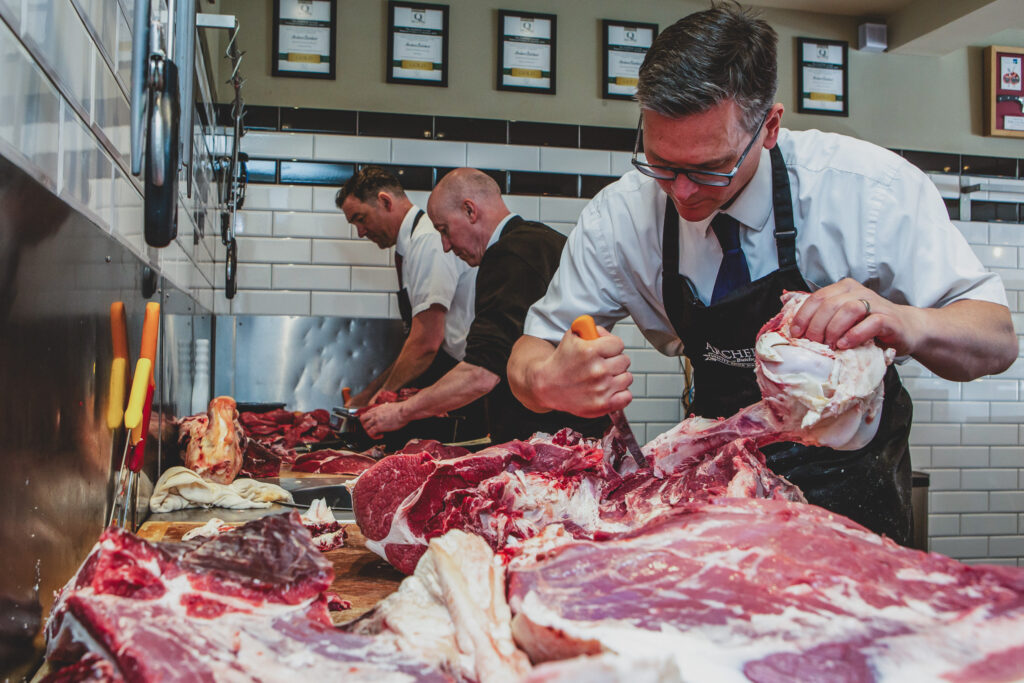
When shopping for meat, you’ve likely noticed a variety of labels on the packaging—grass-fed, organic, free-range, and more.
These terms can be confusing, and it’s important to understand what they actually mean so you can make informed choices that align with your values, dietary preferences, and health goals.
This guide will break down the most common meat labels found in the UK.
GRASS-FED

Definition: Grass-fed meat comes from animals that have been fed a diet primarily composed of grass or forage, rather than grains. This diet is closer to what the animals would naturally eat in the wild.
What to Look For: In the UK, the term “grass-fed” isn’t strictly regulated, so it’s important to look for additional certifications. The Pasture for Life certification, for example, guarantees that the animal has been fed on pasture for its entire life. At Archer Butchers, our grass-fed cattle are free to roam and graze in large fields, with at least one acre per animal. These fields are rich in natural grasses, wildflowers, and shrubs, providing a diverse diet. Additionally, the cattle have access to a natural source of water that runs through the fields, ensuring they live in a natural and healthy environment.
Health Implications: Grass-fed meat tends to be leaner and contains higher levels of omega-3 fatty acids and conjugated linoleic acid (CLA), which are beneficial for heart health. It also often has higher levels of antioxidants like vitamin E.
Environmental Impact: Grass-fed systems can be more sustainable if managed correctly, promoting biodiversity and healthier soils. However, they require more land and produce less meat per animal compared to grain-fed systems.
OUTDOOR BRED / REARED
Definition: These terms refer to pigs that are born outdoors and then either raised outdoors (outdoor reared) or brought indoors for finishing (outdoor bred). This is different from free-range, where animals have continuous access to outdoor spaces.
What to Look For: Look for the RSPCA Assured label or specific information from the producer about the conditions under which the pigs were raised. “Outdoor bred” means the pigs were born outside but may have been brought indoors later, while “outdoor reared” means they spent a significant portion of their lives outdoors. For example, at Archer Butchers, we offer outdoor reared pork from Tim Allen’s farm on the Holkham Estate in North Norfolk. Tim is a third-generation farmer who raises a mixture of native breeds, ensuring succulent, well-marbled pork that is both RSPCA Assured and Red Tractor certified.
Health Implications: Outdoor systems can lead to higher animal welfare, which can translate to better-quality meat. However, there are no significant nutritional differences between outdoor-bred and conventionally-raised pork.
Environmental Impact: Outdoor pig farming can be more sustainable than indoor systems, particularly if the land is managed properly to prevent issues like soil erosion. However, it requires more space and resources.
RSPCA ASSURED MEAT LABELS
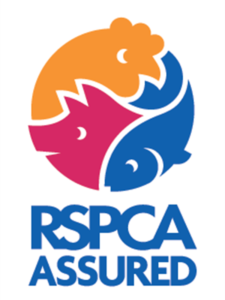
What does RSPCA Assured Mean?
When you see an RSPCA Assured label on a meat, fish or dairy product, it means that the hatchery, farm, haulier and abattoir were all assessed and confirmed to have met the RSPCA’s higher farm animal welfare standards.
CORN FED
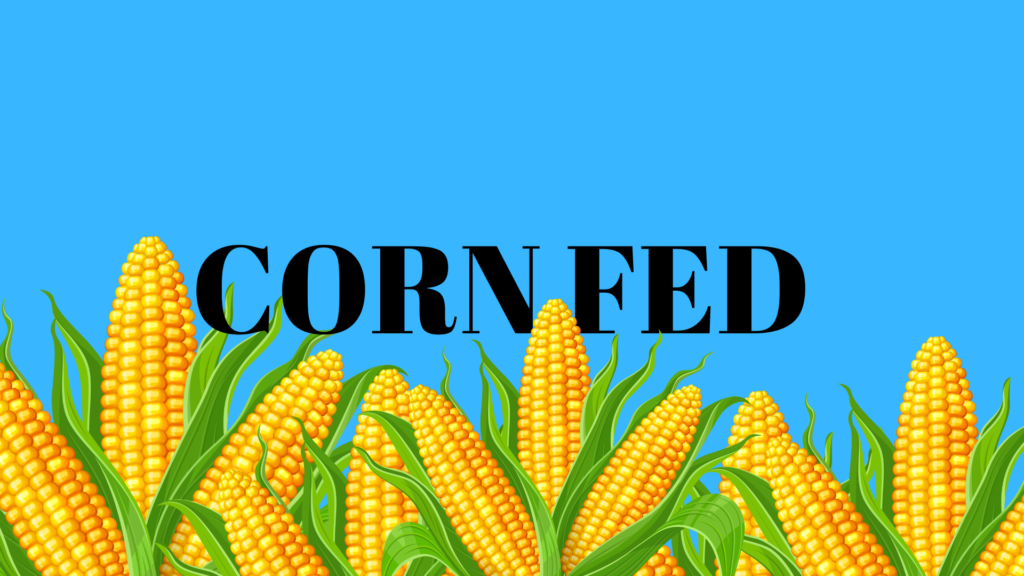
Definition: Corn-fed meat comes from animals, usually poultry, that have been fed a diet high in maize (corn). This diet gives the meat a distinctive yellow colour and a slightly sweeter flavour.
What to Look For: The term “corn-fed” is often used in conjunction with other labels, such as free-range or organic. Check the packaging for additional certifications to understand the full scope of how the animal was raised.
Health Implications: Corn-fed meat tends to have more fat and a different flavour profile than non-corn-fed meat. Nutritionally, there is little difference, although the higher fat content may not be suitable for all diets.
Environmental Impact: Corn production can be resource-intensive, requiring significant water and pesticide use. However, if combined with other sustainable practices, corn-fed systems can still be environmentally viable.
SOIL ASSOCIATION
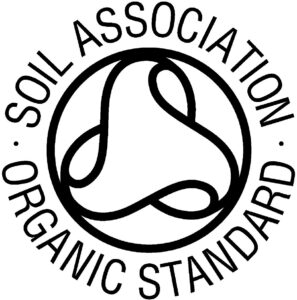
The Soil Association is an organic certification that provides numerous welfare benefits beyond standard industry practices.
These benefits include banning confinement systems, providing bedding and environmental enrichment, guaranteeing free-range access with shade and shelter.
It outlines specific guidelines for stunning and slaughter, and monitoring animal welfare through outcome measures. We encourage you to look for this logo when shopping or dining out.
RED TRACTOR
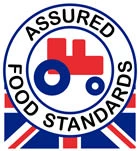
Definition: The Red Tractor label is a UK assurance scheme that covers food safety, animal welfare, and environmental protection. Meat with this label comes from farms that meet these basic standards, which are audited regularly.
What to Look For: The Red Tractor label is widely recognised in the UK and ensures that the meat comes from a farm with good practices in place. However, it represents a minimum standard rather than a high welfare or organic standard.
Health Implications: Meat with the Red Tractor label is safe to eat and produced under regulated conditions. While it doesn’t guarantee the same level of welfare or environmental impact as organic or free-range labels, it does ensure a baseline level of quality.
Environmental Impact: The Red Tractor scheme includes environmental standards, but these are not as stringent as those for organic or pasture-raised systems. However, it still promotes better farming practices than non-certified meat.
BRITISH

Definition: The term “British” on a meat label means that the meat comes from animals raised and slaughtered in the UK. This label doesn’t necessarily imply any specific farming practices but indicates that the meat is of local origin.
What to Look For: British meat often carries additional labels, such as Red Tractor or organic, which provide more information about the farming practices used. Check for these certifications to understand more about how the meat was produced.
Health Implications: Eating British meat supports local farming and can reduce the carbon footprint associated with transportation. However, the nutritional content is comparable to meat from other countries, depending on the farming practices used.
Environmental Impact: Buying British meat can reduce food miles and support sustainable local farming practices. However, the overall environmental impact depends on the specific farming methods used.
When choosing meat, consider what matters most to you—whether it’s animal welfare, environmental sustainability, or nutritional quality. By understanding these labels, you can make choices that align with your values and enjoy your meals with confidence.

